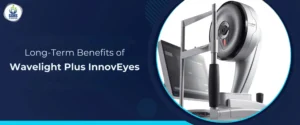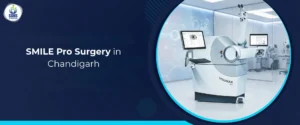Hypertension or high blood pressure as we commonly know it, is a medical condition in which the force of blood in the arteries is consistently on the higher side. Arteries are the blood vessels that carry oxygenated blood from the heart to other parts of the body. When you have hypertension, your heart has to work harder to pump blood.
A reading of 120/80 mm Hg is considered normal. Blood pressure is considered high when you regularly have 140/90 mm Hg or higher.
Risk factors for high blood pressure:
- old age
- genetics
- obesity or being overweight
- not being physically active
- pregnancy
- consuming a diet high in salt, saturated fat, and/or trans fats
- smoking
- excessive alcohol consumption
- specific medicines (oral contraceptives, cold medication, pain killers)
- medical conditions like diabetes, kidney problem, sleep issues
It is vital to identify the underlying cause of hypertension to effectively treat and manage it. Untreated, the condition can raise the risk of other health issues, such as chest pain, heart attack, heart failure, stroke, kidney disease, and vision problems.
Read more on:
ToggleHow Hypertension Affects Your Vision
With high BP, the blood exerts too much force on the walls of the arteries. This can adversely impact the blood vessels all over the body. These blood vessels include the tiny, fragile blood vessels nourishing your eyes. When you have high blood pressure, you may experience some temporary changes in vision. For example, you may have blurry vision or see floaters (small specks or cobweb-like shapes floating in your field of vision). These may subside as blood pressure comes down in the normal range.
However, if you have consistently high BP, it may give rise to several serious vision issues:
Hypertensive Retinopathy
Elevated blood pressure can harm the blood vessels in the retina – the light-sensitive tissue at the back of your eyes. The tiny blood vessels may become narrow or thicker. They may even leak. All these developments can damage the retina and affect vision. When this happens, you may experience symptoms like changes in vision, blurry vision, difficulty seeing in dim light, or even total vision loss if the damage is serious. The risk of retinopathy is more if you have diabetes along with hypertension.
Retinal Vein Occlusion
If not treated, high BP can lead to the formation of blood clots (obstructions) in the retinal veins. This can hamper proper blood flow in the retina. It can also lead to swollen veins that leak blood and fluids into the retina. Such swelling and bleeding of veins can damage the retinal cells. The result is impaired vision. The magnitude depends on the severity – where the blockage is and how much blood supply is cut off. If fluid leaks into the macula – the central area of the retina – it can lead to a serious decline in your vision. Lack of proper blood circulation can cause the retinal cells to die, and this may cause irreversible damage to vision.
Optic Neuropathy
Severe and unchecked high BP can harm the blood vessels that nourish the optic nerve – the nerve responsible for transmitting visual inputs from the eye to the brain. When the supply of blood and oxygen to the optic nerve reduces, it may swell leading to sudden vision loss in one or both eyes. There may not be any pain, however. This loss of vision may range from mild to severe. Also, it may affect your side or central vision. You may also notice signs like blurred vision, visual field defects, or changes in how you see colours.
Choroidopathy
The choroid is a vascular layer located between the retina and the sclera, the white outer layer of the eye. Unchecked high BP can damage the choroid. Blood supply to the choroid may get affected. Fluid may also build-up between the layers of the choroid, giving you blurred vision, changes in colour vision, visual distortions, or central vision loss.
Higher Risk of Other Eye Conditions
High BP may also put you at risk of other eye conditions such as glaucoma, macular degeneration, and diabetic retinopathy. It is pertinent to mention here that many eye conditions associated with hypertension may not cause any clear symptoms in the early stages. Regular eye checkups are therefore necessary to detect and monitor potential eye issues linked with high BP.
Conclusion
High blood pressure or hypertension can affect the eyes in many ways and can lead to serious vision problems. If you are hypertensive or have a family history of high BP, it is essential to regularly monitor your blood pressure levels and effectively control it. Seek the guidance of a trusted healthcare provider. It will help reduce your risk of health complications. Also, do consult an eye specialist for assessment and treatment of any eye-related concerns.
Sohana Eye Hospital, a leading eyecare centre in North India, has the most advanced diagnosis and treatment facilities for all sorts of eye conditions, including those associated with hypertension. Whether you want to just get a regular eye exam or require treatment for any complicated eye condition, the hospital has everything that ensures high-quality treatment and care. This includes highly experienced eye doctors in Chandigarh, cutting-edge eye technologies, world-class infrastructure, and compassionate patient-first ideology – at affordable prices.
Follow a healthy lifestyle to keep hypertension away. And if you have the condition, take proper care so that you can minimise its impact on your body and eyes. Keep your eyes safe for life.





